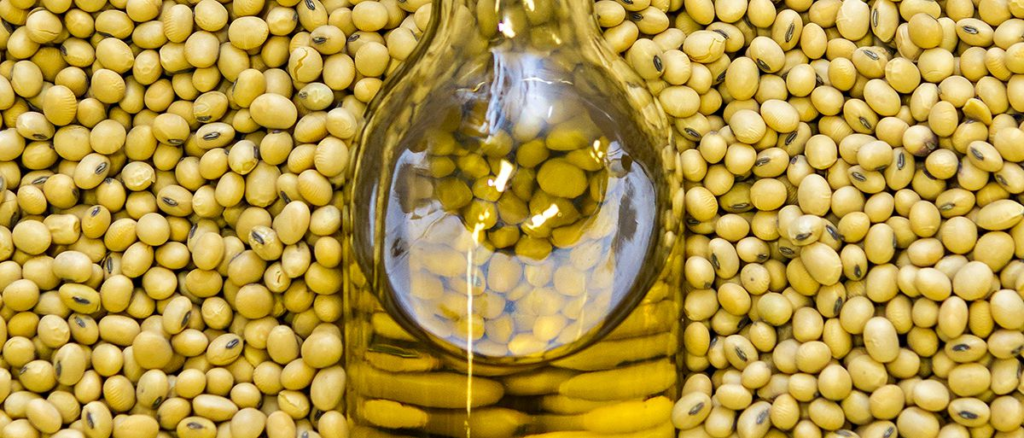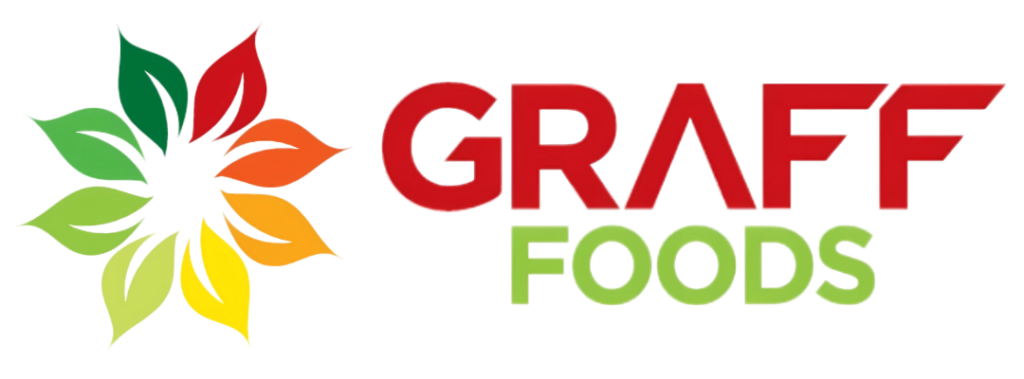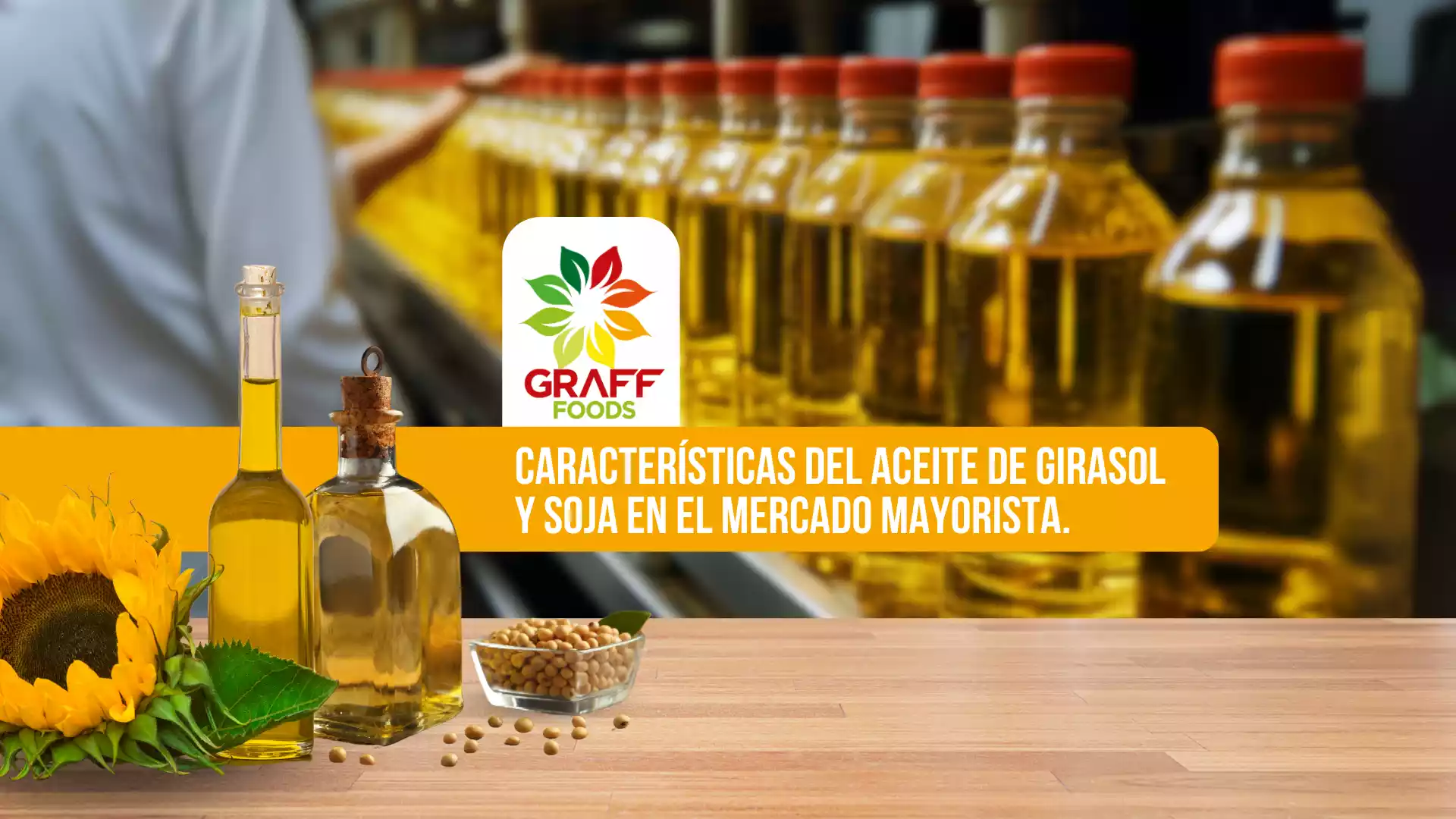Sunflower oil and soybean oil dominate a significant portion of the global wholesale market thanks to their versatility and consistent demand. However, understanding their characteristics and the import process can mean the difference between an efficient operation and supply chain issues. This article breaks down all aspects related to sunflower and soybean oil in the wholesale market, from their properties to the certifications necessary for their commercialization.
Why Are Sunflower and Soybean Oil So Popular in the Wholesale Market?


Both sunflower and soybean oil have a wide range of applications, from the food industry to industrial and cosmetic products. Their popularity in the sunflower and soybean oil in the wholesale market is driven by factors such as:
- Versatility: Both oils are used for frying, dressings, and as a base for margarines.
- Efficiency: Their yield per ton makes them highly profitable options for distributors and retailers.
- Global demand: The growth of emerging markets has spurred consumption, creating a greater need for a consistent supply.
Characteristics of Sunflower Oil in the Wholesale Market

Sunflower oil is extracted from sunflower seeds and is known for its neutral flavor and high unsaturated fat content. In the wholesale market, it stands out for:
- High oxidative stability: Ideal for frying, as it withstands high temperatures without losing quality.
- Performance in processed foods: Perfect for snacks and packaged foods due to its extended shelf life.
- Refined and unrefined options: Depending on the final use, it is available in different grades.
Key Certifications for Sunflower Oil
To commercialize sunflower oil in the international wholesale market, it must comply with:
- ISO 22000: Ensures food safety throughout the production process.
- Kosher or Halal Certification: Depending on the target market.
- Certificate of Analysis (CoA): A technical document that certifies the quality of a specific batch.
Characteristics of Soybean Oil in the Wholesale Market

Soybean oil is the most widely produced oil globally, thanks to the abundance of soybean crops. In the wholesale market, it is distinguished by:
- Nutritional profile:Nutritional Profile Rich in polyunsaturated fats and omega-3, making it popular in healthy products.
- Alta disponibilidad: Easy to source in large volumes due to its massive production.
- Aplicaciones industriales: n addition to food use, it is utilized in biofuels and chemical products.
Key Certifications for Soybean Oil
The trade of soybean oil requires compliance with strict regulations to ensure global acceptance. Key certifications include:
- USDA Organic: For markets demanding organic products.
- RSPO (Roundtable on Sustainable Palm Oil): Ensures sustainable agricultural practices.
- Traceability Certificate: Enables identification of the oil's origin and production process.
Comparison Between Sunflower Oil and Soybean Oil
When it comes to sunflower and soybean oil in the wholesale marketunderstanding their differences can be crucial to selecting the right product for your business needs. While both oils have similar applications, they excel in different areas:
- Nutritional profile:Nutritional Profile
- Rich in vitamin E and monounsaturated fats, ideal for healthier applications.
- Known for its omega-3 and polyunsaturated fats, great for wellness products.
- Flavor and Culinary Use
- Neutral flavor, perfect for frying or processed foods.
- Slightly stronger flavor, widely used in dressings and baked goods.
- Heat Stability
- Higher heat stability, suitable for prolonged frying.
- Less stable but works well in recipes that don’t require high temperatures.
- Availability and Cost
- Slightly more expensive but gaining popularity in premium markets for its health profile.
- More affordable due to high global production.
By analyzing these differences, sunflower and soybean oil in the wholesale market, businesses can make informed decisions based on their target audience and desired applications.
The Import Process for Sunflower and Soybean Oil
Importing sunflower and soybean oil in the wholesale market involves several steps to ensure quality, quantity, and timely delivery:
1. Supplier Selection
Working with reliable suppliers is the first step. Consider factors such as:
- History of successful exports.
- Compliance with international regulations.
- Available production volumes.
2. Required Documentation
Importing oils requires the following:
- Certificates of origin.
- Phytosanitary permits.
- Quality documents, such as lab analyses and technical sheets.
3. Transportation and Storage
Oil transportation must be conducted under controlled conditions, especially for bulk volumes. Storage tanks must be clean and certified to avoid contamination.
4. Tariffs and Logistic Costs
Depending on the destination country, tariffs can vary significantly. Additionally, insurance should be included to cover losses or damages during transit.
Trends in the Wholesale Oil Market
In recent years, the oil market has undergone several changes:
- Demand for sustainable products: More consumers are seeking oils produced under eco-friendly standards.
- Preference for smaller packaging in emerging markets: While wholesalers work with large volumes, the end market demands practical packaging formats.
- Price fluctuations: Oil prices are subject to changes in weather and production costs, affecting wholesale contracts.
Understanding the characteristics, certifications, and import process of sunflower and soybean oil in the wholesale market is essential for ensuring successful operations in a competitive environment. These oils not only represent a significant business opportunity due to their high demand but also require strategic management in terms of quality, logistics, and regulations. Being well-informed on these aspects will allow you to maximize the opportunities they offer in the global market.
How Can Graffoods Help You?

At Graffoods, we work with a global network of suppliers to guarantee a steady supply of sunflower and soybean oil in the wholesale market with competitive advantages worldwide. Our expertise in importing allows us to:
- Manage the entire logistics process efficiently.
- Ensure compliance with international regulations.
- Offer customized packaging solutions tailored to your market needs.
Ready to include our solutions in your portfolio? Contact us today , and let’s find the best way to optimize your supply chain for your business.

